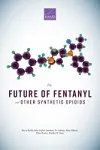 Accueil
Accueil
Détail de l'auteur
Auteur B. PARDO |
Documents disponibles écrits par cet auteur (13)
 Ajouter le résultat dans votre panier Faire une suggestion Affiner la recherche
Ajouter le résultat dans votre panier Faire une suggestion Affiner la recherche![Can new psychoactive substances be regulated effectively? An assessment of the British Psychoactive Substances Bill [Addiction debate]](https://bdoc.ofdt.fr/img_cache/pmb_ofdt_record_78334.webp)
Article : Périodique
The regulation of new psychoactive substances (NPS) has confounded governments throughout the western world. In 2014 the UK government convened an NPS Review Expert Panel to consider a range of approaches. Ultimately the Panel recommended that t[...]Nouveauté

Article : Périodique
Cannabis policy reforms in the Americas: A comparative analysis of Colorado, Washington, and Uruguay
Legal reforms in the Americas are influencing the public debate on cannabis policy. Uruguay and the two US states of Colorado and Washington have taken steps to regulate and legitimize the production, distribution, and use of cannabis and its de[...]
Rapport
In 2012, Colorado and Washington State became the first two jurisdictions to legally regulate marijuana, followed by Uruguay becoming the first country to do so in 2013. This table provides a comparison of the main elements of each jurisdiction'[...]
Rapport
B. KILMER ; J. TAYLOR ; J. P. CAULKINS ; P. A. MUELLER ; A. J. OBER ; B. PARDO ; R. SMART ; L. STRANG ; P. H. REUTER | Santa Monica, CA : Rand Corporation | Research Reports | 2018Current levels of opioid-related morbidity and mortality in the United States are staggering. Data for 2017 indicate that there were more than 47,000 opioid-involved overdose deaths, and one in eight adults now reports having had a family member[...]
Rapport
Changing patterns in drug use and supply can affect the well-being and development of Asian countries in many ways: The burden of disease from injection drug use, overreliance on the criminal justice system, and rise of drug-related crime can im[...]
Rapport
The introduction of illicitly manufactured synthetic opioids to U.S. drug markets presents new challenges for contemporary drug policy: The potency of many synthetic opioids increases risk to users and poses challenges for first responders, the [...]
Article : Périodique
For nearly a century heroin has dominated the illegal opioid trade. The global supply of heroin is estimated to generate tens of billions of dollars in revenues a year and its illegal use has long been the source of many societal harms. The arri[...]
Article : Périodique
J. P. CAULKINS ; B. PARDO ; B. KILMER |Background: Drug use is often measured in terms of prevalence, meaning the number of people who used any amount in the last month or year, but measuring the quantity consumed is critical for making informed regulatory decisions and estimating th[...]
Article : Périodique
Advances in chemistry, technology, and globalization have contributed to the rapid development and diffusion of NPS (new psychoactive substances), creating perhaps the most serious challenge to the century-old international drug control system a[...]Nouveauté
![Supervised consumption sites: a nuanced assessment of the causal evidence [Addiction opinion and debate]](https://bdoc.ofdt.fr/img_cache/pmb_ofdt_record_82482.webp)
Article : Périodique
BACKGROUND AND AIMS: Supervised consumption sites (SCS) operate in more than 10 countries. SCS have mostly emerged as a bottom-up response to crises, first to HIV/AIDS and now overdose deaths, in ways that make rigorous evaluation difficult. Opi[...]![Supplying synthetic opioids during a pandemic: An early look at North America [Commentary]](https://bdoc.ofdt.fr/img_cache/pmb_ofdt_record_84121.webp)
Article : Périodique
International commerce and travel have been restricted in order to limit the spread of COVID-19. The illegal trafficking in drugs, which is often concealed in other commercial activity, will be affected by these disruptions. This is particularly[...]![The dawn of a new synthetic opioid era: the need for innovative interventions [Addiction Opinion and Debate]](https://bdoc.ofdt.fr/img_cache/pmb_ofdt_record_84117.webp)
Article : Périodique
B. PARDO ; J. TAYLOR ; J. CAULKINS ; P. REUTER ; B. KILMER |BACKGROUND: Overdose deaths related to illegal drugs in North American markets are now dominated by potent synthetic opioids such as fentanyl, a circumstance foreshadowed by often-overlooked events in Estonia since the turn of the century. Marke[...]
Rapport
B. PARDO ; J. TAYLOR ; J. P. CAULKINS ; B. KILMER ; P. REUTER ; B. D. STEIN | Santa Monica, CA : Rand Corporation | Research Reports | 2019Deaths involving synthetic opioids in the United States increased from roughly 3,000 in 2013 to more than 30,000 in 2018. In fact, synthetic opioids like fentanyl are now involved in twice as many deaths as heroin. This book offers a systematic [...]




